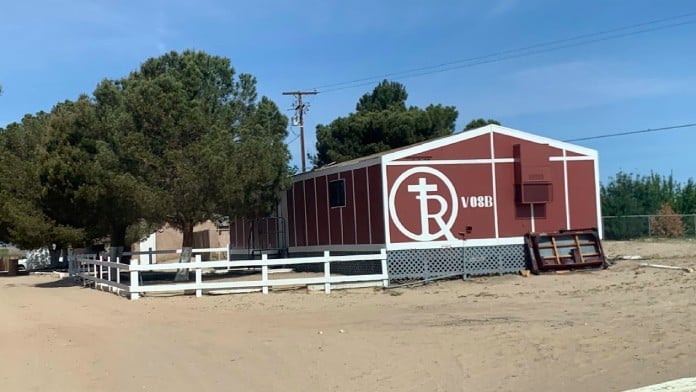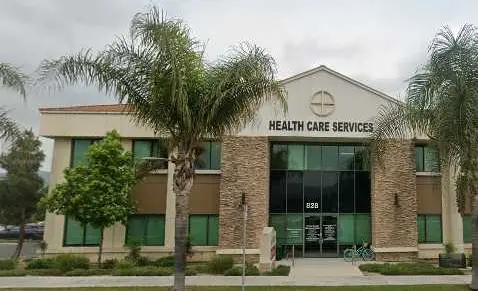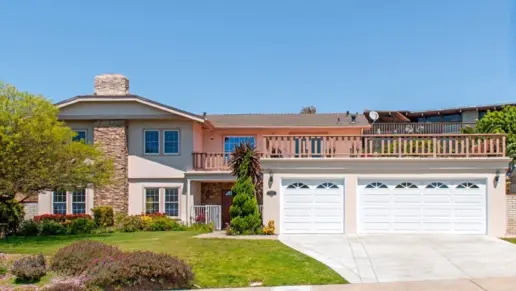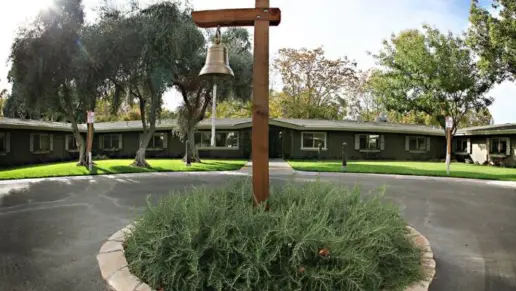About The Victory Outreach Ranch
The Victory Outreach Ranch is located in Helendale, California. This is a Christian faith based recovery ranch that serves men who need support for their substance use recovery. This live-in program lasts 12 months and will help you navigate your recovery struggles through a faith based approach to care in a supportive environment.
It’s important to know this is not a substance abuse treatment program. Rather, Victory is a community of peers and mentors you can turn to will help you navigate the difficult obstacles associated with addiction recovery.
This recovery facility helps empower recovering men aged 18 and older to build the skills they need to pursue a fruitful and sober lifestyle. At the heart of their recovery homes is Christian faith based teachings that are weaved into the program’s curriculum. You’ll learn how to reclaim your life through critical skills that will be developed within their recovery home.
At this recovery home setting, you’ll be empowered to work collaboratively with other residents in the facility. This way, you’ll learn essential communication skills and problem solving skills.
You’ll also be encouraged to attend different community and church services that can help you. This includes services such as 12 Step programs like Alcoholics Anonymous and Narcotics Anonymous. Within these programs, you’ll be able to lean on peers and mentors when you experience obstacles in your recovery.
This facility has been in operation for over 40 years, and they tout a 70% success rate with the men that come through the program.
Facility Overview
Gallery

Location
Other Forms of Payment
Self-pay involves paying for treatment out of your own pocket. You can use savings or credit, get a personal loan, or receive help from family and friends to fund your treatment. If you don't have insurance or your insurance plan doesn't cover a specific program, self-pay can help ensure you still get the care you need.
Addiction Treatments
Levels of Care
Treatments
The goal of treatment for alcoholism is abstinence. Those with poor social support, poor motivation, or psychiatric disorders tend to relapse within a few years of treatment. For these people, success is measured by longer periods of abstinence, reduced use of alcohol, better health, and improved social functioning. Recovery and Maintenance are usually based on 12 step programs and AA meetings.
Drug rehab in California teaches participants constructive ways to stay clean and sober. Treatment revolves around helping individuals stop using the substance they are addicted to and learn healthy habits to avoid relapse.
Opioid rehabs specialize in supporting those recovering from opioid addiction. They treat those suffering from addiction to illegal opioids like heroin, as well as prescription drugs like oxycodone. These centers typically combine both physical as well as mental and emotional support to help stop addiction. Physical support often includes medical detox and subsequent medical support (including medication), and mental support includes in-depth therapy to address the underlying causes of addiction.
Substance rehabs focus on helping individuals recover from substance abuse, including alcohol and drug addiction (both illegal and prescription drugs). They often include the opportunity to engage in both individual as well as group therapy.
Programs


Clinical Services
Research clearly demonstrates that recovery is far more successful and sustainable when loved ones like family members participate in rehab and substance abuse treatment. Genetic factors may be at play when it comes to drug and alcohol addiction, as well as mental health issues. Family dynamics often play a critical role in addiction triggers, and if properly educated, family members can be a strong source of support when it comes to rehabilitation.
Group therapy is any therapeutic work that happens in a group (not one-on-one). There are a number of different group therapy modalities, including support groups, experiential therapy, psycho-education, and more. Group therapy involves treatment as well as processing interaction between group members.
In individual therapy, a patient meets one-on-one with a trained psychologist or counselor. Therapy is a pivotal part of effective substance abuse treatment, as it often covers root causes of addiction, including challenges faced by the patient in their social, family, and work/school life.
Amenities
-
Private Setting
Staff

Director
Contact Information
73 Lords Rd
Helendale, CA 92342


